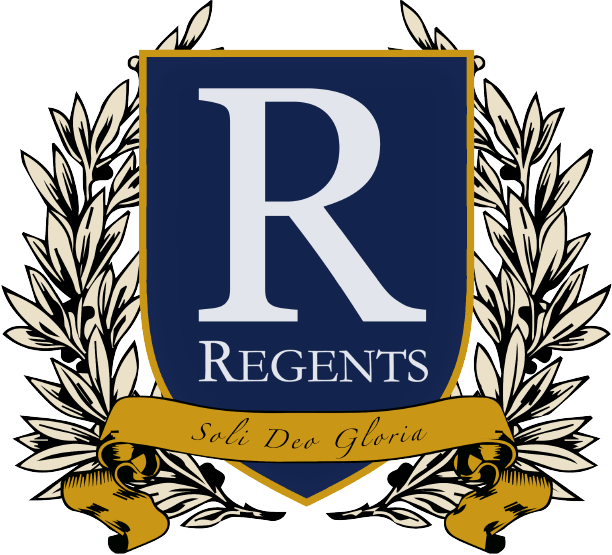
© 2026 Regents School of Charlottesville.
“Rhythm and harmony find their way into the inward places of the soul, on which they mightily fasten, imparting grace.”
-Plato
Why do Regents students learn music? We readily acknowledge that a catchy jingle helps students memorize facts, and that playing music sets an atmosphere in a room. But why is music considered part of Regents’ academic curriculum and not just an extracurricular? Why does the Grammar School music curriculum focus on singing?
Music is included in the academic curriculum because it is one of the seven liberal arts. While the trivium (grammar, logic, and rhetoric) develops the art of language, the quadrivium (arithmetic, geometry, astronomy, and music) develops the art of measurement. Together, the trivium and quadrivium form the seven liberal arts, ‘liberal’ coming from the Latin word ‘liber’ meaning ‘free.’ Music belongs in the quadrivium because of its bond with number and nature: Pitches that sound pleasant together can be created by dividing a string in half, thirds, fourths, fifths, etc. (the overtone series). Likewise, rhythm is the division of sound in time.
Music is orderly and rational, but the well-defined structures of pitches and rhythms moves man to sometimes overpowering emotion. Mankind has long used music to celebrate, lament, pray, dance, soothe, arouse, terrify, infuse courage, and unite a community. It creates a union of the rational with the irrational, of order with feeling. Music is formative because it plays a role in shaping the desires of the heart. Plato understood that some forms of music are conducive to orderliness of soul and the love of grace and beauty, while others indulge baser passions. We desire for our students to be virtuous by loving what is right, true and good, and teaching them music is one means of distilling these virtues to their hearts.
Why does the Grammar School music curriculum focus on singing? Aside from the practical argument that singing trains the ear and the voice and unites a community, there is a biblical basis for why Christians are called to sing and make a joyful noise to the Lord. We are called to imitate Christ, and he is revealed to us as a singing Savior: “The Lord your God is in your midst...he will exult over you with loud singing.” (Zephaniah 3:17). Jesus, his disciples, and his apostles were well-versed in the Psalms which were always sung. Jesus quoted nine Psalms during his ministry, and there are quotes from sixty-one Psalms throughout the New Testament. Moses erupted in song after the Israelites crossed the Red Sea in Exodus 15, and Mary sang after the visitation of Gabriel in Luke 1. Paul exhorts us to “address one another in psalms, hymns and spiritual songs, singing and making music to the Lord” in Ephesians 5:19. When Christ is enthroned in Revelation 4-5, the saints and angels are singing continually.
Our music classroom exercises in melody, harmony, rhythm, ear-training, tunefulness, and notation through folk songs culminate in the glorious act of worshiping God together: “Oh come, let us sing to the LORD, let us make a joyful noise to the Rock of our salvation” (Psalm 95:1). The Grammar School ends the school day by singing our hymn of the month--teachers and students together--while gathered in the Agora for dismissal. To God be the glory!
-Miss Suffern, Grammar School Music teacher
(Source material: https://theimaginativeconservative.org/2016/02/timeless-essays-the-neglected-muse-why-music-is-an-essential-liberal-art.html)